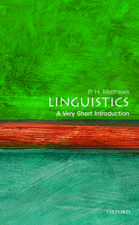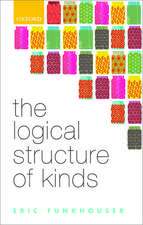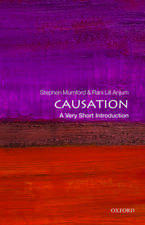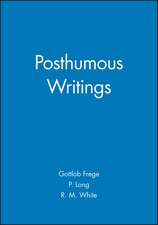Being Realistic about Reasons
Autor T. M. Scanlonen Limba Engleză Paperback – 7 ian 2016
| Toate formatele și edițiile | Preț | Express |
|---|---|---|
| Paperback (1) | 146.85 lei 31-37 zile | |
| OUP OXFORD – 7 ian 2016 | 146.85 lei 31-37 zile | |
| Hardback (1) | 324.63 lei 31-37 zile | |
| Oxford University Press – 16 ian 2014 | 324.63 lei 31-37 zile |
Preț: 146.85 lei
Preț vechi: 179.90 lei
-18% Nou
Puncte Express: 220
Preț estimativ în valută:
28.10€ • 30.52$ • 23.61£
28.10€ • 30.52$ • 23.61£
Carte tipărită la comandă
Livrare economică 11-17 aprilie
Preluare comenzi: 021 569.72.76
Specificații
ISBN-13: 9780198748106
ISBN-10: 0198748108
Pagini: 144
Dimensiuni: 142 x 215 x 8 mm
Greutate: 0.18 kg
Editura: OUP OXFORD
Colecția OUP Oxford
Locul publicării:Oxford, United Kingdom
ISBN-10: 0198748108
Pagini: 144
Dimensiuni: 142 x 215 x 8 mm
Greutate: 0.18 kg
Editura: OUP OXFORD
Colecția OUP Oxford
Locul publicării:Oxford, United Kingdom
Recenzii
a powerful and superbly written short book.
T. M. Scanlon's new book is essential reading for anybody interested in metaethics and practical rationality.
a much needed challenge to all forms of non-cognitivism.
Scanlon delivers new insights and develops new ways of thinking about normative claims. His book thereby introduces engaging ways of discussing normative theory that should be further developed and brought to bear on actual discussions. As such Being Realistic about Reasons shows us an independent thinker outlining his current thinking about normative claims. His book is a challenge to all non-cognitivist theories of moral thinking and proponents who try to interpret moral terms in naturalistic terms such as "water" and the likes. Hopefully it will be taken on.
T. M. Scanlon is a towering figure in moral and political philosophy ... Throughout, this new book reveals the impressive creative intelligence that always characterizes Scanlon's work. It is an important work, which all metaethicists will have to come to grips with, since it defends a distinctive position about these central metaethical questions.
intelligent and candid book
T. M. Scanlon's new book is essential reading for anybody interested in metaethics and practical rationality.
a much needed challenge to all forms of non-cognitivism.
Scanlon delivers new insights and develops new ways of thinking about normative claims. His book thereby introduces engaging ways of discussing normative theory that should be further developed and brought to bear on actual discussions. As such Being Realistic about Reasons shows us an independent thinker outlining his current thinking about normative claims. His book is a challenge to all non-cognitivist theories of moral thinking and proponents who try to interpret moral terms in naturalistic terms such as "water" and the likes. Hopefully it will be taken on.
T. M. Scanlon is a towering figure in moral and political philosophy ... Throughout, this new book reveals the impressive creative intelligence that always characterizes Scanlon's work. It is an important work, which all metaethicists will have to come to grips with, since it defends a distinctive position about these central metaethical questions.
intelligent and candid book
Notă biografică
T. M. Scanlon received a BA from Princeton in 1962 and a PhD from Harvard in 1968, in between studying for a year at Brasenose College, Oxford. He taught at Princeton from 1966 until 1984, and at Harvard since that time. Scanlon is the author of many articles in moral and political philosophy, and of three books: What We Owe to Each Other (Harvard University Press, 1998), The Difficulty of Tolerance: Essays in Political Philosophy (CUP, 2003), and Moral Dimensions: Permissibility, Meaning, Blame (Harvard University Press, 2008).



























